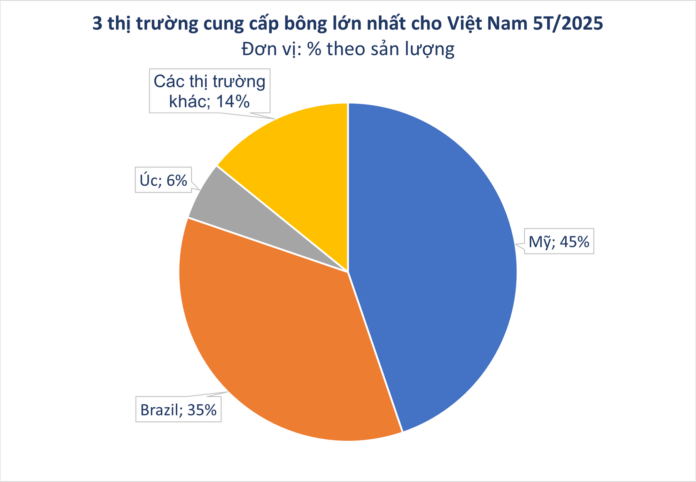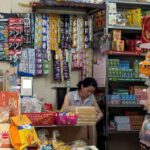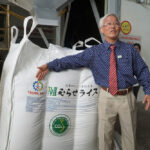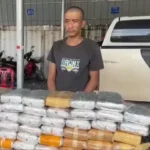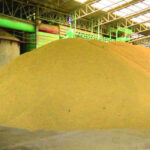According to preliminary statistics from the General Department of Vietnam Customs, cotton imports to Vietnam in May reached over 163,000 tons, valued at more than $276 million.
Cumulative imports in the first five months of the year totaled nearly 788,000 tons, worth over $1.35 billion, a increase of 19.4% in volume and 2.7% in value compared to the same period in 2024.
In the first five months of 2025, the United States continued to be Vietnam’s largest cotton supplier after surpassing Brazil in the previous month, with 353,000 tons worth more than $621 million, an increase of 85% in volume and 54% in value compared to the same period in 2024. The average price stood at $1,762 per ton, a 16% decrease from the previous year.
The US market accounts for approximately 45% of Vietnam’s total cotton imports. Simultaneously, Vietnam is the third-largest cotton importer for the United States, after China and Pakistan.
Brazil ranked second with 279,000 tons in the first five months, equivalent to $492 million, reflecting a decrease in growth to 29% in volume and an increase of 11% in value due to reduced cotton imports from Brazil in May.
Australia, the third-largest source of cotton imports for Vietnam, witnessed significant decreases in both volume and value.
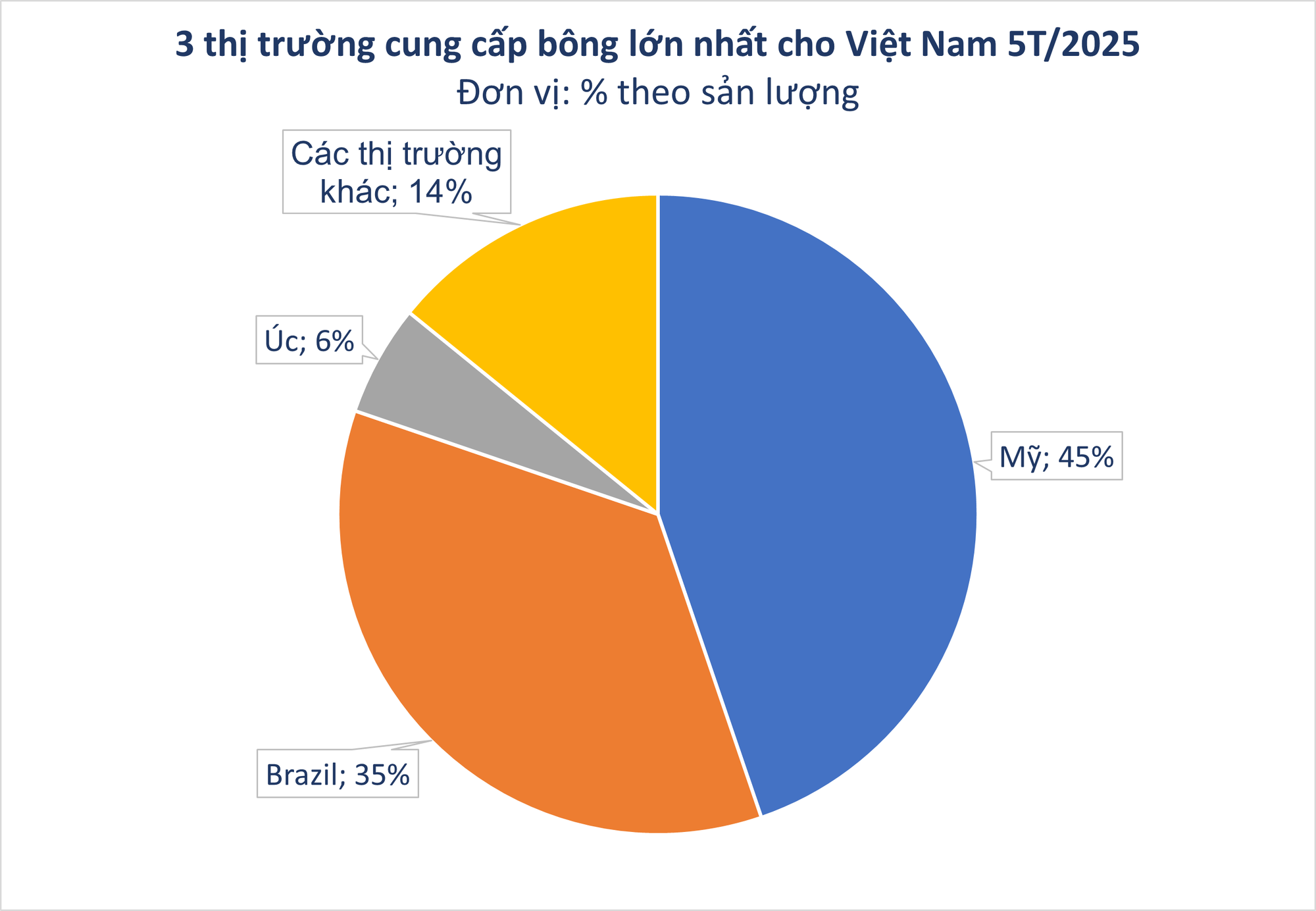
Vietnam is the third-largest cotton importer worldwide, with an annual consumption of 1.5 million tons. The country is also the sixth-largest exporter of fiber and the third-largest exporter of garments, only behind China and Bangladesh.
The textile industry is one of Vietnam’s key export sectors, and cotton is an indispensable raw material in the production of yarn, fabric, and clothing. The US is the world’s largest exporter of cotton, known for its consistent fiber quality, making it a global favorite.
Vietnamese textile companies often source cotton from the US to ensure stable fiber quality for large-scale production, meet high standards when exporting garments to the US and the EU, and mitigate price fluctuation risks from other markets.
Major textile factories in Hai Duong, Nam Dinh, Thai Binh, and Ho Chi Minh City are increasing cotton imports from the US to meet their 2025 export production plans.
As Vietnam and the US do not have a bilateral free trade agreement, preferential import tax rates are typically applied to goods imported from the US. The tax rate for cotton imported from the US is approximately 5%.
According to data from the US Department of Agriculture (USDA), in 2024, the world’s largest economy exported approximately 2.49 million tons of cotton, valued at $5 billion.
For 2025, US cotton exports are expected to decline due to harsh weather conditions. A USDA report from November 2024 projected a $200 million decrease in export value to $4.3 billion due to lower export volumes. This could be attributed to increased competition from other exporting countries, particularly Brazil, which has surpassed the US as the world’s largest cotton exporter.
The USDA forecasts a significant increase in US cotton exports to Vietnam in 2025 due to record-high demand. This is driven by Vietnam’s continuing rise in cotton demand, fueled by the global recovery of the textile industry and increasing foreign investment in this sector.
The Rice Emission Reduction Opportunity
“Vietnam Leads the Way: Pioneering Low-Emission Rice for a Sustainable Future”
Vietnam has taken a groundbreaking step forward in the global food industry by becoming the first country to introduce low-emission rice to the market. This innovative move showcases the country’s commitment to sustainability and environmental consciousness.
Uncovering the Illicit Drug Trade Route from the Golden Triangle to Vietnam
After a two-month-long investigation and surveillance operation, a special task force from the Dien Bien Province Public Security Department, in collaboration with the Public Security Forces of Northern Laos, successfully dismantled a large-scale illegal drug trafficking and transportation ring on June 9.
The King of Fruits: Thailand’s Agricultural Triumphs Set to Rival Vietnam’s Exports
“Thailand is ramping up its exports of two key agricultural commodities, rice and cassava, to China. This strategic move could potentially impact Vietnam’s market share in these sectors. With a focus on expanding their global reach, Thailand’s aggressive approach may spark a competitive response from Vietnam to maintain its foothold in the industry.”

























